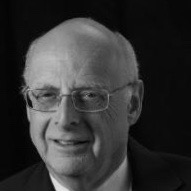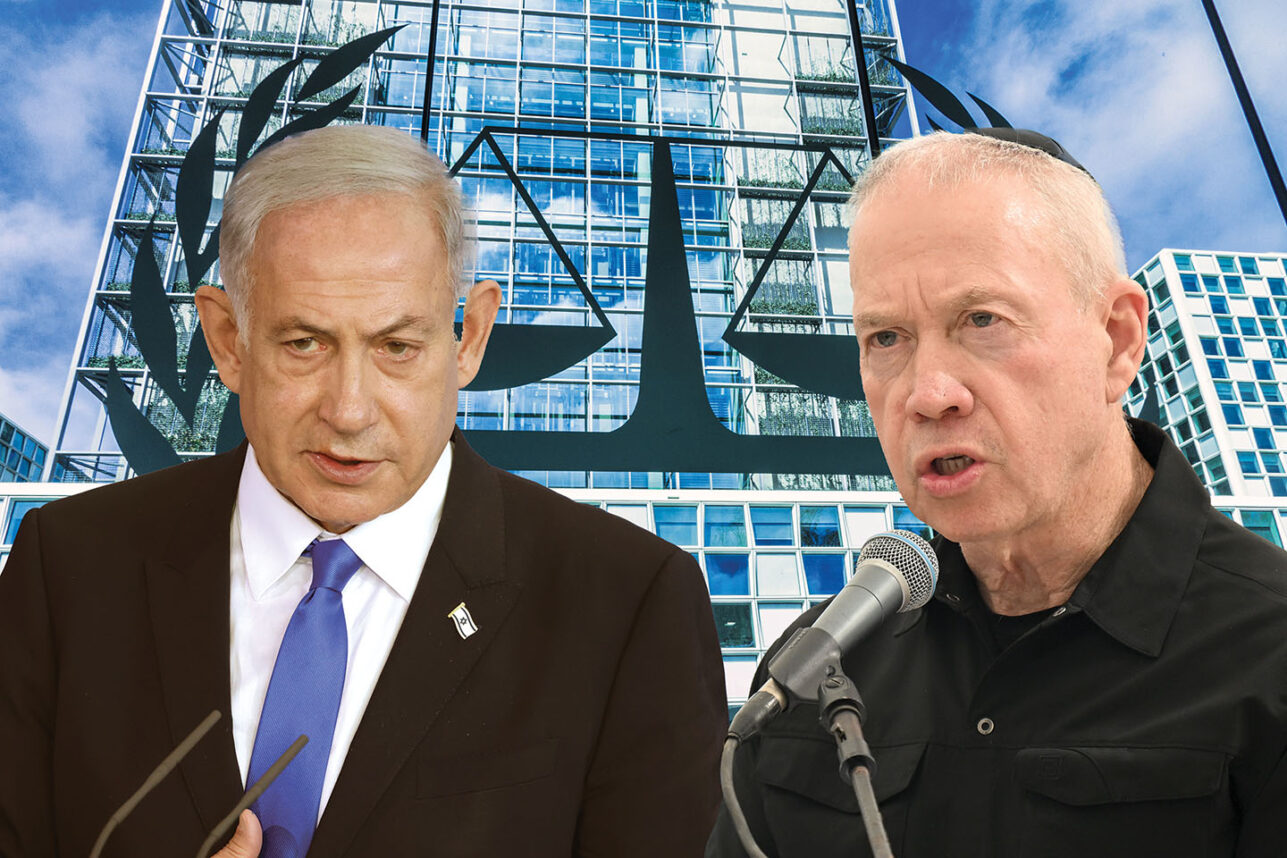
Over the course of its history, Israel’s relationship with its Jewish world partners has undergone a series of transitions.
Against the backdrop of the Holocaust during the middle of the 20th century, Israel’s “survivability” was seen as critical to the welfare of the Jewish enterprise. “One people, one destiny” was the dominant motif during the first 20 years of statehood, when Israel enjoyed broad Diaspora support.
“Sustainability” was the defining element for the next quarter century. Here, the nature of the Jewish partnership, symbolized by the United Jewish Appeal campaign of the time, “We Are One,” would rest on garnering and maintaining political, economic and military support vital to Israel’s standing. Over these past 25 years, Israel moved away from themes reflecting its earlier vulnerable position and promoted an image of an exemplar of political and social ingenuity based on its emergence as a technologically accomplished nation-state with a sophisticated economy and an advanced military. In this third phase, Israel has become the dominant player in global Jewish matters, but it has also experienced a fundamental disruption in its historic partnership with its Diaspora as a widening divide has developed with some of its former partners.
On a host of policy matters today, one can find deep divisions between the liberal-orientated attitudes of a majority of American Jews, who differ with the center-right views of the government in Jerusalem over such policy questions as settlements and human rights. More particularly, some Jewish Americans are uncomfortable with Israeli initiatives to remove African asylum seekers and proposals that seek to curb the free-speech rights of boycott, divestment and sanctions supporters or deny admission into the Jewish State of individuals associated with specific anti-Israel movements. Just as Jewish American liberals defended the Obama administration’s record on Israel, President Donald Trump’s supporters embrace his policies in connection with the Jewish State, creating in the wake of these disagreements significant gaps among Israel’s historic partners.
“Engaging in effective communication and dialogue will require a shared base of knowledge, a level of open reflection, and a culture of civility.”
Israel’s defenders argue that Diaspora communities do not have the right to publicly critique Israel over its policies and actions — only citizens of the Jewish nation do. Members of the Diaspora challenge that argument, noting that Israel was created as the collective expression of the Jewish people, and as such all Jews not only have the right to express their views but have an obligation to assert their ideas.
Beyond these internecine battles, debates over how the international community should engage Iran or whether dissent of Israel’s actions constitutes anti-Semitism have opened deep crevices between Israel’s traditional Jewish supporters.
Instead of creative dialogue, one finds disagreement and discord. Some Jewish Americans frame their criticisms in moral terms, suggesting that Israel ought to hold itself to a higher standard consistent with the Jewish values that shaped its Zionist heritage. They have lost trust in an Israeli government that has moved to the political right, become mired in political corruption scandals, and continued to operate around what they consider to be a set of deeply flawed assumptions. As a result, Jewish Americans’ engagement with Israel has been declining, especially among younger Jews, which presents another challenge to Israeli authorities and Jewish-American leaders.
As these debates unfold, critics of Israel’s politics are dismissed as misguided or as undermining the Jewish State by their refusal to defend and protect this historic experiment in nation building.
Indeed, both Israelis and Jewish Americans have their respective visions or images of the Jewish State, some of which are based on romantic perceptions of Israel’s Zionist origins. Others might be described as political realists, as they focus on the multiple military and security threats that have defined Israel’s history and remain its core challenges. A third constituency could be defined as “bound by history,” for whom specific events, such as the Oslo Accord and its promise of peace, resonate as the pivotal moment in Israel’s diplomatic journey. For this cohort, particular personalities or events have ultimately defined their vision of how Israel ought to act.
With its enthusiastic endorsement of President Donald Trump, Israel could be seen symbolically as an ideal “red state” base for his administration; while many Jewish Americans might metaphorically represent a “blue state” constituency, with their overriding opposition to this White House and current Israeli policies.
With the issue of intersectionality, American Jews are often forced to choose between their social justice priorities and their Zionist passions. Maybe for the first time in American history Jews are engaging with allies on specific issues where they find common ground, yet knowing that these “friends” espouse views that may be perceived as anti-Israel.
Political tensions are also prevalent within Israel, as evidenced by a host of domestic policy conflicts. These internal disagreements among Israeli citizens resemble a geopolitical war between “the state of Tel Aviv” with its secular, liberal orientation and “the state of Jerusalem” with its traditional religious and politically conservative perspective.
While many Jewish Americans are experiencing great discomfort about the current political theater in the United States, Israelis on the political left are expressing concerns about the status of their democracy as scandal and corruption appear to be on the increase. Even as the issues that animate these communities’ angst appear to be vastly different, there exists an impasse, even a state of gridlock, common to these two political systems. Both nations appear unable to rely on politicians or institutional elites to be able to change the status quo.
So, the question here is how can we find common ground — not only between Israelis and Americans but also within our respective, deeply divided societies? Engaging in effective communication and dialogue will require a shared base of knowledge, a level of open reflection, and a culture of civility.
“Jewish history readily informs us that where our people remain in discord, the political outcomes have been profoundly problematic.”
We are dramatically reminded that this experiment in state building is a relatively new venture — hardly a significant period of time to develop a mature, sophisticated understanding of how a nation, its citizens or its Diaspora partners ought to behave and operate. Jewish history readily informs us that where our people remain in discord, the political outcomes have been profoundly problematic.
The political divide speaks to a larger set of issues outlined by these key questions:
Does the liberal Jewish mainstream share any common political ground with its more politically conservative co-religionists? How might we find ways to open such conversations?
The political divide around Israel is a central element in the battle over the Jewish future. As Jewish Americans, what should be our relationship with the Jewish State?
Politically conservative Jewish American are embracing closer ties between the Trump administration and Israel’s political establishment, as they seek to advance Israel’s security. Liberal Jewish Americans are seeking to halt the expansion of settlements, promote a Palestinian-Jewish dialogue and advance a human-rights agenda as a way to ensure Israel’s long-term security. What, if any, are the common threads here for a shared discussion?
Who is permitted to critique Israel? The political right argues that the prerogative of criticism belongs only to the citizens of the Jewish State. Its counterpart, the Jewish progressive community, contends that Jews across the world are partners in the task of building and defending the State of Israel, and as such ought to be able to participate in a conversation concerning the nature and character of the Jewish political enterprise.
How do we negotiate the Jewish religious divide? One of the core issues to this division is centered on Jerusalem and the question of the “Kotel.” Will Jews find a way to negotiate shared accommodations in response to their different religious inclinations
Finally, what does it mean to be Jewish in a 21st-century environment where the scourge of anti-Semitism, racism and ethnic hatred has re-emerged? Will Jews find common ground in order to unite in this battle? (Enemies of the Jewish people do not distinguish between the Jewish left and the Jewish right.)
Can Jewish Americans even be defined at this point as a community, with shared values and common goals? Is there anything that can align our divergent factions so that the Jewish people can achieve our long-term interests?
As battle lines have intensified around Israeli and American politics and policies, friendships have ended over political disagreements, and organizations have been pressured to take positions. Sadly, even dinner-guest lists are being screened to ensure that those invited share political viewpoints in concert with the host. Civility and consensus have given way to name-calling and political separation.
Is this the first time in Jewish history where our community seemed fractured? No! In fact, the pathways of Jewish history would suggest that Jews have been constantly in contention with one another. Some have argued that this has been an asset, as contentious debate and controversy has stimulated creative responses, great literature and thoughtful commentaries, as well as significant Jewish heroes and leaders. Others have viewed these divisions with grave concern, judging our historic infighting as being destructive over the centuries to our people’s well-being.
Rabbi Jonathan Sacks gives special attention to this corrosive issue, when he writes:
“Recent history — the Holocaust and the sense of involvement that most Jews throughout the world feel in the fate of Israel — has convinced us that the Jewish destiny is indivisible. We are implicated in the fate of one another. That is the substantive content of our current sense of unity. But it is a unity imposed, as it were, from outside. Neither anti-Semitism nor anti-Zionism, we believe, makes distinctions between Jews. Hence our collective vigilance, activity and concern. But from within, in terms of its own self-understanding, the Jewish people evinces no answering solidarity. External crisis unites Jews; internal belief divides.”
Over the past decade, in particular, Jewish groups have begun to address the civility issue. The Jewish Council for Public Affairs in 2010 created a “Civility Statement.” Based on the civility initiatives developed by the Jewish Community Relations Council of San Francisco, this national statement was developed:
“As a community, we must commit ourselves and ask others to open their hearts and minds to healthy, respectful dialogue based on our love for our neighbors and our people. We therefore agree to treat others with decency and honor and to set ourselves as models for civil discourse, even when we disagree with each other. We commit ourselves to this course to preserve an essential element of a community — the ability to meet and talk as brothers and sisters.”
In light of the difficult and contentious conversations and programs around Israel on college campuses, Hillel, among other agencies, has developed guidelines for such discussions. And the Resetting the Table organization is collaborating with partner organizations, as it says, “to build important communication across political silos in American life. Our work ranges from one-off forums to intensive year-long programs for institutional and community transformation that replace long-standing distrust or avoidance with a culture of healthy dialogue and deliberation.”
Jews have worked across party lines and with those with whom we may have had political disagreements in the past, in order to achieve what is best for this nation. We will do so again. Let the conversation begin!
Steven Windmueller is the Rabbi Alfred Gottschalk Emeritus Professor of Jewish Communal Service at the Jack H. Skirball campus of Hebrew Union College-Jewish Institute of Religion in Los Angeles. Portions of this article were previously published on eJewishphilanthropy.com.






















 More news and opinions than at a Shabbat dinner, right in your inbox.
More news and opinions than at a Shabbat dinner, right in your inbox.